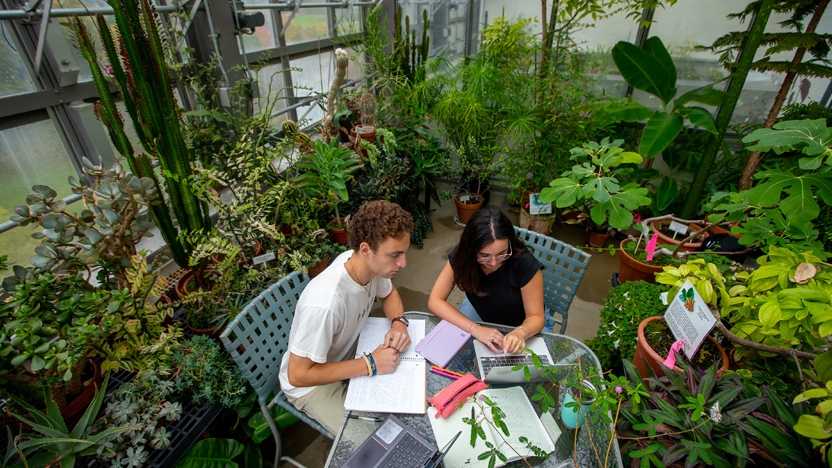Get Involved

The climate crisis affects us all- and we all can be part of the solution! Explore some of the actions that you can take to feel empowered, make a difference, and contribute to achieving the Energy2028 goals.
The actions below are for all- and you can explore more based on your specific community (students, faculty, staff, and community members) in the subpages.
100% Renewable
- Join the Environmental Council to help create policies and best practices surrounding the campus transition to 100% renewable energy. The council is open to students, faculty, and staff!
- Transition your home to renewable energy and encourage those you love to do the same- explore Efficiency Vermont’s website for ideas and rebates!
- Be a voice for clean energy and support its adoption on the local, regional, and national level
25% Reduction in Energy Usage
- Switch your lighting to high-efficiency LED lightbulbs
- Turn off the lights, tv, and other appliances when you leave your room
- Use the sleep setting when your computer is on- screen savers don’t actually reduce energy usage!
- For home owners, look into energy audits, weatherization, and efficiency swaps- they can save you money and energy
- If you have a personal printer, set it to double sided default and “ink saver” mode, and turn it off when not in use
- Invest in a power strip to plug all technology and appliances into and then turn off when not in use to reduce your “phantom load” (energy that is still consumed even when technology/appliances are off!)
- Switch your technology to “dark mode” for energy savings (Check out the nuance in this article from Medium!)
- Invest in a solar-powered charger for small items such as cell phones
Divestment
- Support and/or join student groups like RISE (Research & Investment in Sustainable Equity) and SNEG (Sunday Night Environmental Group)
- Look into the practices of the banks/investment companies you use for your personal accounts and consider switching your accounts if they do not align with your values and goals for contributing to climate action
- Talk with your financial advisor about switching your retirement/investment account to an ESG (environment, social, and governance) profile that is more socially responsible
Educational Integration
- Talk about climate change in your classes and office. Whether you’re teaching, learning, or working, the climate crisis relates to everything!
- Participate in the Worldwide Climate Teach-In every April
- Talk about the climate impacts of the use of AI in classrooms
- Ask for help!
Justice
- Start to learn about the environmental justice movement, where it began, and why it is so important. Once you’ve learned the history, exploring EJAtlas and EJScreen are good places to get a lay of the land, as are the consideration of questions like:
- How are marginalized communities disproportionately affected by environmental hazards and climate change impacts?
- How can we center the experiences and voices of marginalized communities in environmental justice advocacy and policymaking?
- What are the root causes of environmental injustices in marginalized communities?
- How can we ensure that environmental policies and initiatives are equitable and inclusive?
- What role do structural inequalities play in exacerbating environmental injustices?
- What steps can be taken to build resilience and empower marginalized communities to address environmental injustices?
- Employ a justice lens in everything that you do- ask questions like:
- What environmental injustices exist in my community?
- Are there organizations I can work with in my community?
- How do we ensure everyone has a voice in the conversation?
- What does employing a justice lens really look like in my life and community?
- Talk about it!

